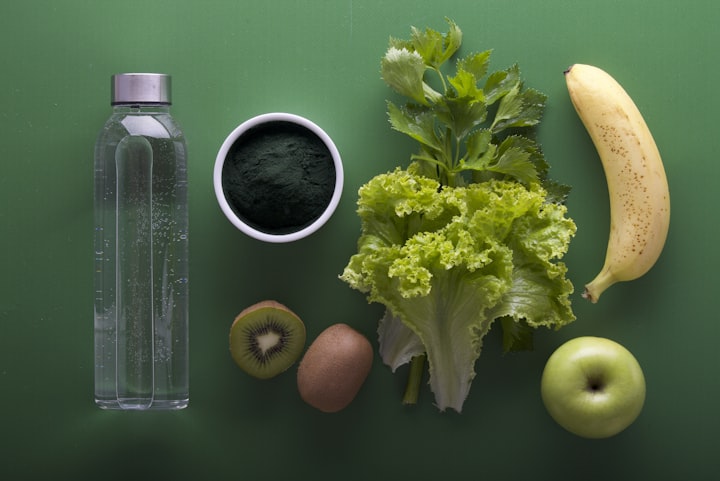Seed Oils 101
Clearing the name of these common ingredients!

If there is one piece of nutrition misinformation I would love to never hear again, it would be about seed oils.
Seed oils (especially canola oil) are given an awful reputation, often touted as “toxic”, “inflammatory” and “hormone imbalancing” by those in the holistic and naturopathic fields. And nine times out of ten, there isn’t any sort of reference given to back it up – just a simple, “Google it, you’ll see!”.
This is the worst research strategy ever. Trust me. So in true science nerd fashion, I decided it was high time to do some research of my own. While we can find lots of information out there on the Internet, we need to be able to use a strong understanding of the scientific method and apply critical analysis. An educated provider knows how to do this, and provide the receipts.
Canola oil is plant-based (1), extracted from the canola flower in a similar fashion to that of olive or avocado oil. It has a high smoke point, which means it can be safely used for pan-frying and frying in cooking. It also has a fairly neutral flavour, so it doesn’t tend to disrupt recipes in terms of overall experience. Canola oil is also rich in alpha-linoleic acid, an essential fatty acid important for longevity and conversion to EPA for brain health (2).
Canola oil is often recommended to be swapped out for olive oil or sunflower oil, which are higher in linolenic acid, an omega-6 – while we do need them for good health, high amounts can actually suppress the production of polyunsaturated fatty acids and contribute to deficiency of EPA (2).
A significant amount of research has been done on canola oil – some funded by industry (this is where a risk of bias can occur, so taking it with a grain of salt is important) and some not funded at all. In systematic reviews and meta-analysis focused on cardiovascular health and outcomes, canola oil has been shown to significantly improve cholesterol levels (specifically reducing LDL and increasing HDL) and triglycerides compared to sunflower oil, olive oil and saturated fats (1). We’re not sure if this is a dose-response effect, meaning more canola means more improvement, so further study is definitely warranted here.
As part of the Mediterranean diet, canola oil also appears to be supportive to improving plasma glucose levels and blood pressure, however this type of eating pattern has its own issues related to access and cultural applicability (2). Not all populations follow the Mediterranean diet but still have great cardiovascular outcomes!
There is some conversation around canola oil contributing to changes in body fat and overall weight, however studies have shown that it does not seem to correlate with body composition changes alone or in comparison to other oils (3). And, as you probably know by now, body weight isn’t the best marker of health!
In PCOS, canola oil has also been shown to contribute to improvements in HOMA-IR, a marker of insulin resistance, and fatty liver compared to olive and sunflower oils – both of which contribute to higher health risks (4). This is a great tool given we often recommend omega-3 rich sources of fat to promote blood sugar stability and reduce overall inflammation.
There may be some role of canola oil in reducing the risk of cancer, but we need more studies and information into the dose, the types of cancer and how applicable this is to populations (5). Some studies have even examined the impact of a person’s genetic make-up and how this impacts the effect canola oil may have on their cardiovascular health and stroke risk – exciting (6)!
There are other oils out there with some scientific interest – chia seed oil and moringa oil may be potential alternatives to options such as olive oil for their role in antioxidant provision but we need more information to know what their pharmacological properties are (7,8). Other lesser options are starting to be studied in more detail as well – we’re not sure if they’re edible yet so be mindful if you see them on a shelf somewhere (9,10).
Now listen… I can appreciate that not everyone likes using canola oil, and that’s cool. Having other omega-3 sources in our diet is important, like walnuts, fatty fish and flaxseed. Hating on canola oil for a pseudoscience claim is a whole other issue, and is ignoring science altogether.
References: 1. Amiri, M., Raeisi-Dehkordi, H., Sarrafzadegan, N., Forbes, S. C., & Salehi-Abargouei, A. (2020). The effects of Canola oil on cardiovascular risk factors: A systematic review and meta-analysis with dose-response analysis of controlled clinical trials. Nutrition, metabolism, and cardiovascular diseases: NMCD, 30(12), 2133–2145. https://doi.org/10.1016/j.numecd.2020.06.007
2. Román, G. C., Jackson, R. E., Gadhia, R., Román, A. N., & Reis, J. (2019). Mediterranean diet: The role of long-chain ω-3 fatty acids in fish; polyphenols in fruits, vegetables, cereals, coffee, tea, cacao and wine; probiotics and vitamins in prevention of stroke, age-related cognitive decline, and Alzheimer disease. Revue neurologique, 175(10), 724–741. https://doi.org/10.1016/j.neurol.2019.08.005
3. Moghtaderi, F., Amiri, M., Zimorovat, A., Raeisi-Dehkordi, H., Rahmanian, M., Hosseinzadeh, M., Fallahzadeh, H., & Salehi-Abargouei, A. (2021). The effect of canola, sesame and sesame-canola oils on body fat and composition in adults: a triple-blind, three-way randomised cross-over clinical trial. International journal of food sciences and nutrition, 72(2), 226–235. https://doi.org/10.1080/09637486.2020.1786024
4. Yahay, M., Heidari, Z., Allameh, Z., & Amani, R. (2021). The effects of canola and olive oils consumption compared to sunflower oil, on lipid profile and hepatic steatosis in women with polycystic ovarian syndrome: a randomized controlled trial. Lipids in health and disease, 20(1), 7. https://doi.org/10.1186/s12944-021-01433-9
5. Lin, L., Allemekinders, H., Dansby, A., Campbell, L., Durance-Tod, S., Berger, A., & Jones, P. J. (2013). Evidence of health benefits of canola oil. Nutrition reviews, 71(6), 370–385. https://doi.org/10.1111/nure.12033
6. Ramezani-Jolfaie, N., Aghaei, S., Yazd, E. F., Moradi, A., Mozaffari-Khosravi, H., Zimorovat, A., Raeisi-Dehkordi, H., Moghtaderi, F., Amiri, M., Yasini Ardakani, S. A., & Salehi-Abargouei, A. (2020). Association of rs670 variant of APOA-1 gene with cardiometabolic markers after consuming sesame, canola and sesame-canola oils in adults with and without type 2 diabetes mellitus. Clinical nutrition ESPEN, 38, 129–137. https://doi.org/10.1016/j.clnesp.2020.05.016
7. Parker, J., Schellenberger, A. N., Roe, A. L., Oketch-Rabah, H., & Calderón, A. I. (2018). Therapeutic Perspectives on Chia Seed and Its Oil: A Review. Planta medica, 84(9-10), 606–612. https://doi.org/10.1055/a-0586-4711
8. Leone, A., Spada, A., Battezzati, A., Schiraldi, A., Aristil, J., & Bertoli, S. (2016). Moringa oleifera Seeds and Oil: Characteristics and Uses for Human Health. International journal of molecular sciences, 17(12), 2141. https://doi.org/10.3390/ijms17122141
9. Yao, Y., & Xu, B. (2021). New insights into chemical compositions and health promoting effects of edible oils from new resources. Food chemistry, 364, 130363. https://doi.org/10.1016/j.foodchem.2021.130363
10. Lane, K., Derbyshire, E., Li, W., & Brennan, C. (2014). Bioavailability and potential uses of vegetarian sources of omega-3 fatty acids: a review of the literature. Critical reviews in food science and nutrition, 54(5), 572–579. https://doi.org/10.1080/10408398.2011.596292
About the Creator
Emily the Period RD
I help people with periods navigate menstrual health education & wellness with a healthy serving of sass (and not an ounce of nutrition pseudoscience).






Comments
There are no comments for this story
Be the first to respond and start the conversation.